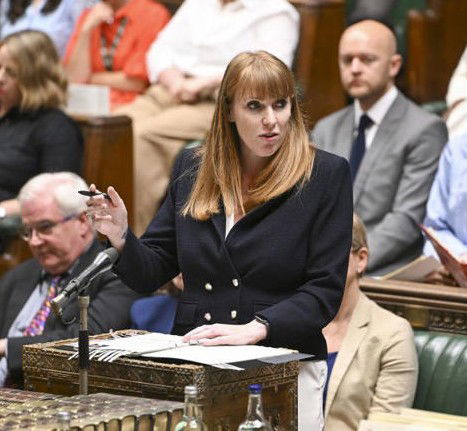What Angela Rayner’s resignation teaches us about trusts for disabled loved ones

Author: Chris Watts MSWW, Estate Planning Consultant, Fern Wills & LPAs
Last verified: 7 September 2025 (England & Wales)
Quick-read summary
Angela Rayner resigned from the government on 5 September 2025 following findings that she underpaid Stamp Duty Land Tax (SDLT) on a property purchase. Her case has highlighted a family arrangement involving a trust set up for her disabled son. Whatever your politics, it’s a timely reminder that trusts for disabled or vulnerable beneficiaries are powerful tools — but they must be set up carefully and, where property and tax are involved, may require specialist advice. Reuters The Guardian
At Fern Wills & LPAs, we don’t advise on complex tax issues like SDLT. Our focus is helping families put the right trust framework in place — so a disabled or vulnerable loved one is financially supported, their inheritance is protected, and their benefits aren’t put at risk.
Practical checklist: when to consider a Disabled or Vulnerable Person’s Trust
You may want to explore this type of trust if:
- You have a child or relative who meets the legal definition of disabled or vulnerable.
- You want to leave them money or property but worry this could affect means-tested benefits.
- You want peace of mind that their inheritance won’t be lost if they can’t manage it themselves.
- You’d like appointed trustees (people you choose) to oversee how funds are used for care and wellbeing.
What to consider
- These trusts can help protect means-tested benefits for the beneficiary.
- They provide a structured way to manage money — trustees decide how and when funds are used.
- For many families they offer favourable inheritance tax treatment versus ordinary discretionary trusts.
- They can be set up in your Will or during your lifetime.
- Where property is involved, other taxes (e.g., SDLT, CGT, Income Tax) can become complex — that’s when a tax specialist may be needed.
Our role: We draft the trust correctly within your Will/estate plan and, if specialist tax advice is needed, we’ll signpost you to trusted professionals.
How this works in real life
We recently helped a family provide for their adult daughter, who receives disability benefits. By including a Disabled Person’s Trust in their Wills, they ensured:
- Her benefits were not disrupted.
- Trustees could manage funds responsibly for health, care, and quality-of-life needs.
- Funds were protected from outside risks — giving long-term peace of mind.
FAQs
Q: Do trusts for disabled beneficiaries really protect benefits?
A: Yes — provided the trust is set up correctly, funds in the trust will usually not count for means-tested benefits.
Q: Do I need a lawyer or tax specialist?
A: We can implement the trust in your Will/estate plan. If your situation involves property or tax-sensitive assets, we’ll recommend a specialist tax adviser.
Q: Who looks after the trust once it’s set up?
A: Your trustees — trusted family members, friends, or professionals — manage it according to the rules you choose.
Q: Can I change my mind later?
A: If the trust is in your Will, you can usually amend it any time while you have capacity.
Q: Does it only apply if my child is already disabled?
A: Not necessarily. In some cases, you can structure a trust where a future diagnosis would qualify.
Optional Technical Notes (for those who want the detail…)
“Disabled Person’s Trusts” are defined in s.89 Inheritance Tax Act 1984 and can qualify for special income tax and CGT treatment as a vulnerable beneficiary (by election). They are distinct from ordinary discretionary trusts (e.g., different IHT regime; no 10-year anniversary charges when conditions are met). For context, reporting has noted that in Angela Rayner’s situation, proceeds from selling a stake in a family home to a trust for her disabled son preceded her separate SDLT issue on a later purchase — underscoring why specialist tax advice can matter when property and trusts interact. The Guardian
Sources & further reading
- HMRC – Trusts for vulnerable people (overview and reliefs)
- legislation.gov.uk – Inheritance Tax Act 1984, s.89
- Recent reporting on the news background (selection): The Guardian; Reuters; Sky News. The Guardian Reuters Sky News
- Fern Wills Article Vulnerable Persons Trust
Next steps
Angela Rayner’s story shouldn’t put families off using trusts. For many, a properly drafted Disabled or Vulnerable Person’s Trust is one of the most effective ways to care for a loved one while protecting benefits and safeguarding their inheritance. If you’d like to explore how this could work in your circumstances, get in touch with Fern Wills & LPAs.


